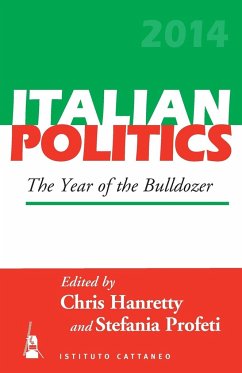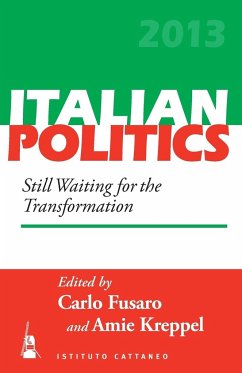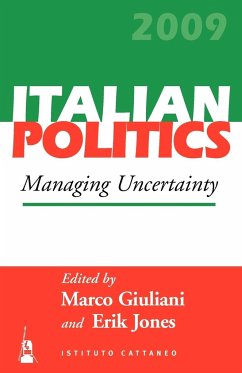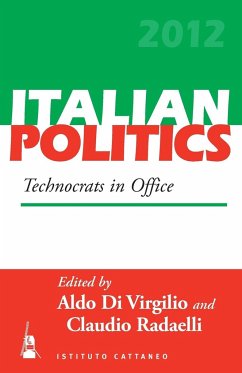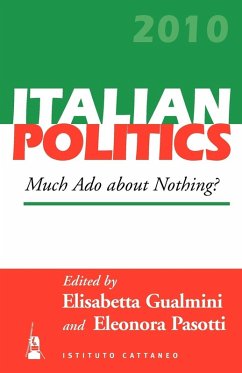
Governing Under Constraint
Versandkostenfrei!
Versandfertig in 1-2 Wochen
70,99 €
inkl. MwSt.

PAYBACK Punkte
35 °P sammeln!
In 2015, Matteo Renzi's government continued to elicit contrasting reactions while dealing with both internal and external constraints. Some say it passed crucial reforms for economic development in fields such as the labor market, the banking system, education, and public administration, in addition to passing a new electoral law. However, others criticize the substance and, even more, the way reforms were passed by constructing variable parliamentary majorities according to the vote at hand, thus avoiding the need to build consensual decision-making relationships with interest groups and fur...
In 2015, Matteo Renzi's government continued to elicit contrasting reactions while dealing with both internal and external constraints. Some say it passed crucial reforms for economic development in fields such as the labor market, the banking system, education, and public administration, in addition to passing a new electoral law. However, others criticize the substance and, even more, the way reforms were passed by constructing variable parliamentary majorities according to the vote at hand, thus avoiding the need to build consensual decision-making relationships with interest groups and further centralizing power in the office of the prime minister. Be that as it may, the government was able to impose its own agenda in domestic affairs. Although the success of the 2015 Universal Exposition in Milan helped to bolster the image of the country, Italy continued to play a marginal role in key international areas, such as migration, European austerity policies, and the fight against terrorism.




